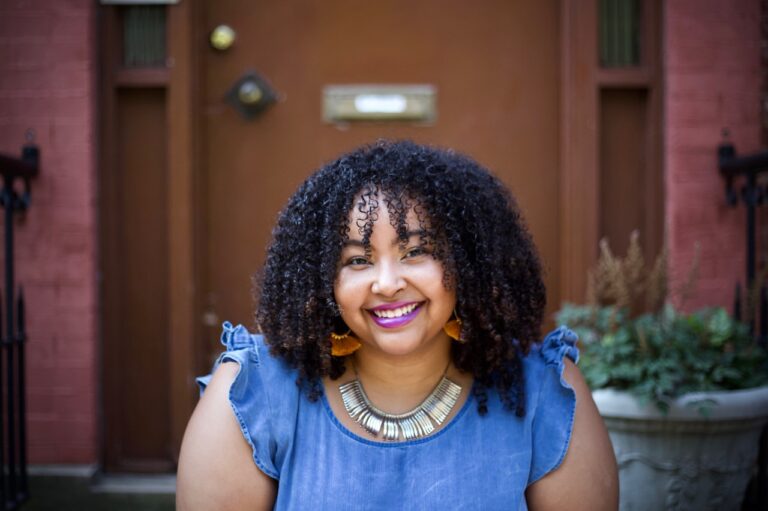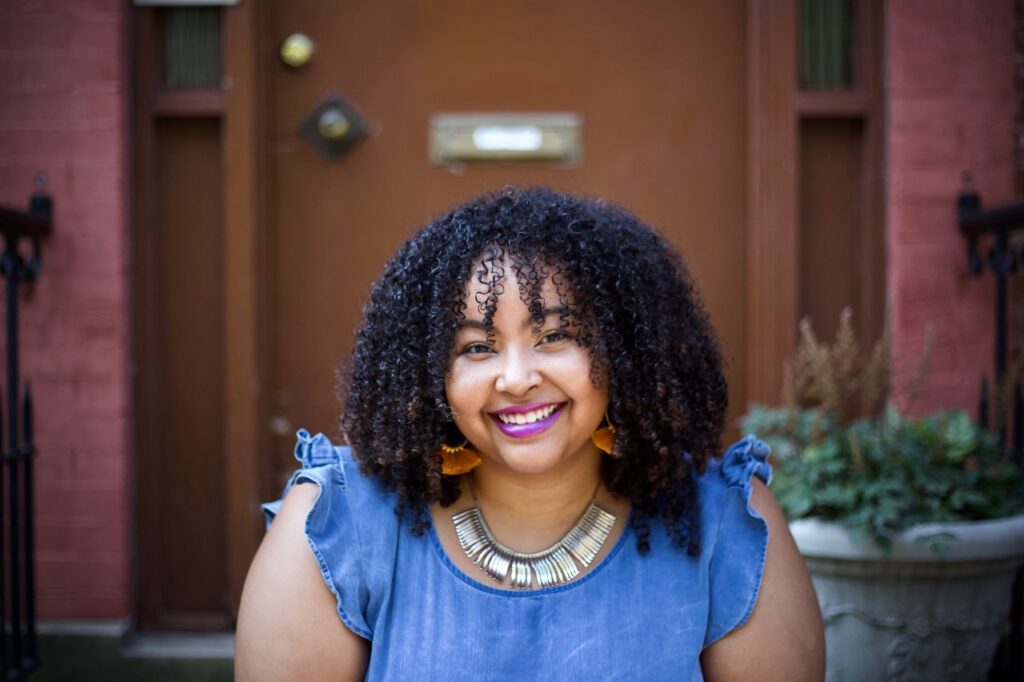“Cigüapa Unbound: Tranceforming AfroLatina Feminist Knowledges”
Omaris Z. Zamora
Rutgers University
La Cigüapa is a figurative portal opener into the trance. Her unboundedness—her strange embodiment with backward-facing feet, her connection to the forest, her refusal to be enclosed in the domestic space, etc.—is a framework for transnational AfroDominican women’s experiences of geographical movement, as well as the fluidity of our identities and their constant transformation to the point that it is at times illegible, unattainable, and untraceable. I expand on this notion of “cigüapa unbound” by centering trance as a theoretical framework that makes visible the process through which AfroLatinas, form feminist knowledges informed through their embodied archives of memories and racialized and gendered experiences.
Omaris Z. Zamora is a transnational Black Dominican studies scholar and spoken-word poet. Her research interests include: theorizing AfroLatinidad in the context of race, gender, sexuality through Afro-diasporic approaches. Her current book project tentatively titled, Cigüapa Unbound: Tranceforming AfroLatina Feminist Knowledges, examines the transnational Black Dominican narratives put forth in the work of Firelei Baez, Elizabeth Acevedo, Nelly Rosario, Ana Lara, Loida Maritza Pérez, Josefina Baez, Cardi B, and La Bella Chanel. Zamora pays close attention to how they embody their Blackness, produce knowledge, and shift the geographies of Black feminism in ways that recognize the legacies of Chicana/Latina and Black American feminist theory in the United States, but tends to the specific experiences of AfroLatina women and their multiple genealogies. The manuscript proposes “tranceformation” as a continuous process that engages with the spiritual aspect of self-making and centers the body as an archive that creates and transmits an AfroLatina feminist epistemological theory. Her work has been published in Post45, Latinx Talk, Label Me Latina/o, among others and has been featured on NPR’s Alt.Latino podcast. She fuses her poetry with her scholarly work as a way of contributing to a black poetic approach to literature and cultural studies.
Please register in advance.


Occurrences
-
Monday, September 27, 2021, 12:15 p.m.–1:30 p.m.